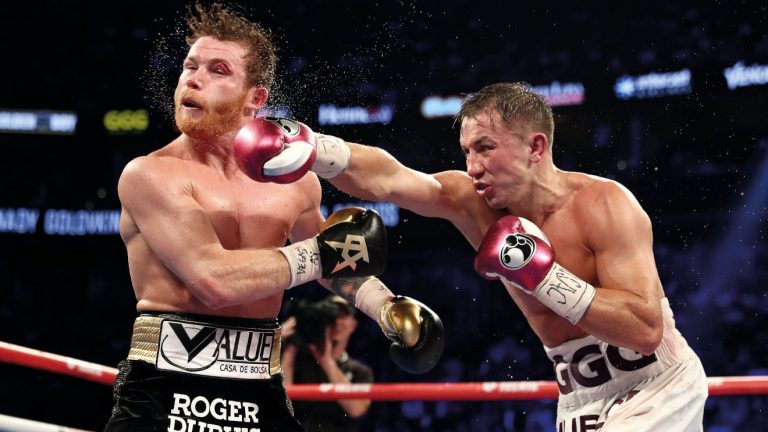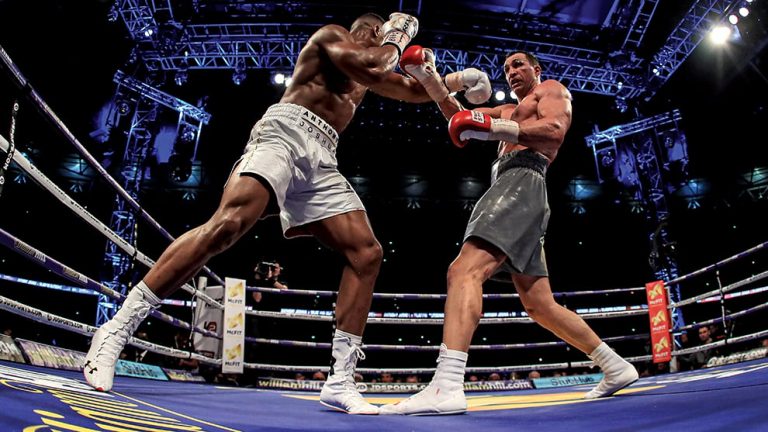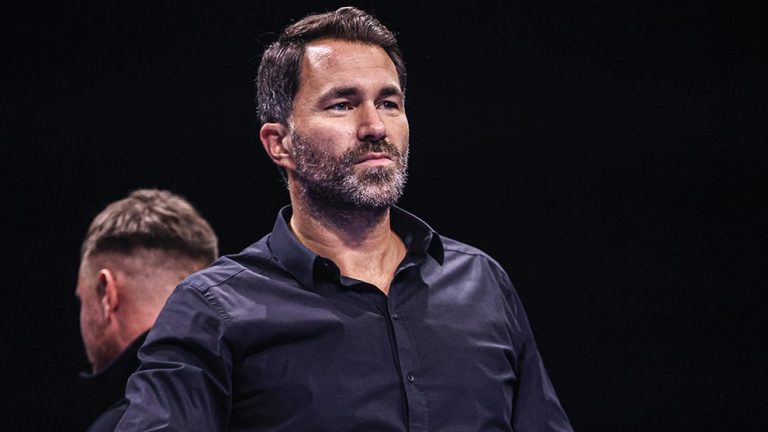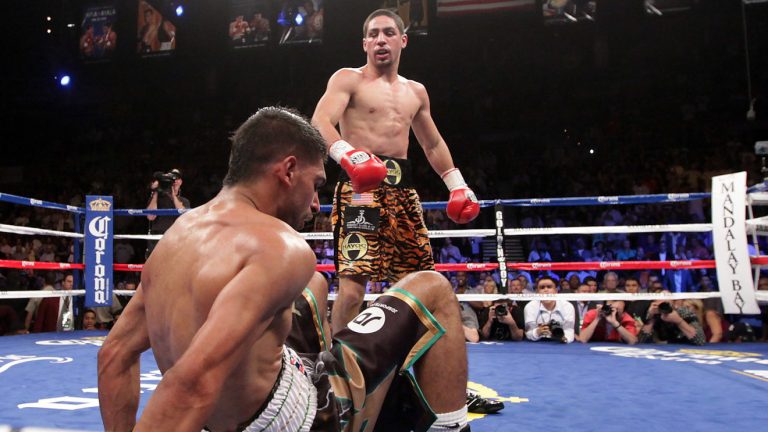It cannot be easy watching your son or daughter box
By Elliot Worsell
IF ever you have sauntered across a park on a Sunday morning and happened upon a football pitch and scores of screaming kids, you will know that there is no sound more terrifying than that produced by the parents watching these screaming kids from the sidelines. A blend of encouragement, negativity, and personal regret, it comes in waves, this wall of sound, and increases in volume whenever a contentious decision is made or a goal is either scored or conceded.
To hear the noises as a passerby is one thing, but to hear them as a son or daughter is something else. For them, the ones at whom these commands are aimed, there is no escape and all they can do to silence them is to be perfect – or, at the very least, win.
Often they fit the same profile, too, these parents. Either they care too much, want to win too much, or have invested too much of their own hopes and dreams in a child whose interest is, for now, a fraction of theirs. They live vicariously through these children, possibly because their own life has reached a staleness too depressing to comprehend, or because in their child they see themselves, the way they used to be, and view the child’s journey as the performance following the dress rehearsal.
Whatever the motive, this behaviour is commonplace whenever winning and losing is involved. It is commonplace on the sidelines at a football game and it is also commonplace in boxing, a sport in which there is far more at stake than simply winning or losing. In fact, when one considers precisely what is at stake when two children or adults enter the ring, is it any wonder that boxing boasts an array of some of the most bizarre, overbearing and troublesome fathers in all of professional sport?
Perhaps not. Perhaps, when you get down to it, the idea of seeing your son or daughter in the ring fighting another human being whose aim is to render them unconscious is about as daunting a prospect as any parent can possibly imagine. In that situation, you are worried less about them winning and more about them returning home at the end of it all still resembling, both physically and mentally, the child you accompanied to the fight. Anything else, in boxing, is a bonus; the victory not so much the “W” as the relief.
At the top level, of course, such thoughts are easier to block, or disregard. It’s there, after all, the big money is being made and titles are being won and family legacy is being established. Yet still, the key ingredients and the fundamental fear remains. Still, you, as the parent, have to watch your son or daughter trade punches with another human being and acknowledge that, regardless of their prowess, everything can change in the blink of an eye.
To even entertain this takes a special kind of person. It requires a level of trust most parents lack, as well an ability to detach with love and believe, despite the odds, all will be okay in the end. That, for a trainer or friend, is tough enough, but for a parent, someone almost predisposed to expect the worst where they child is concerned, such emotions can often lead to outbursts and behaviour you wouldn’t ordinarily expect to find in the parents of, say, tennis players or swimmers.
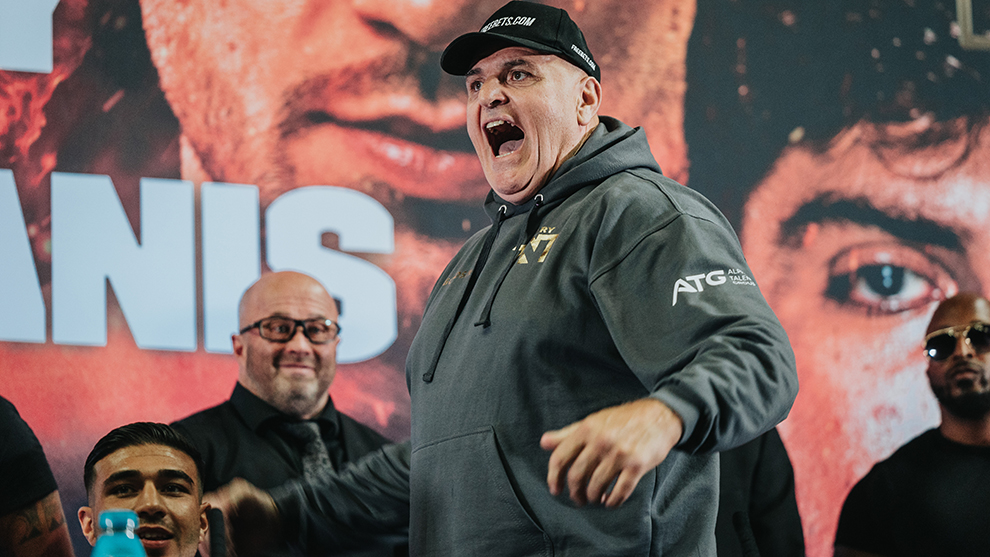
John Fury gets wild (Misfits Boxing)
In recent times, for example, a lot has been made of the behaviour of the dads of Tyson Fury, Devin Haney, and Teofimo Lopez, all of whom have either tried to steal the limelight from their child or done or said something egregious. However, this, while never a good look, is easily explainable when you consider and appreciate what it is these men – hardly emotionally mature men at that – are having to endure in the days and hours leading up to their child entering the ring. That doesn’t make any of it right, no, but at the very least we must attempt to understand what a unique experience it is to see your child in a boxing ring, where danger is of course ubiquitous. At the very least we must accept that unless we have been in this position ourselves it is perhaps unfair to comment on how we, or anyone else, should react.
Then again, it is just as true to say that many parents, both dads and mums, are able to remain level-headed whenever watching their child box. Even the ones who are close to the action, either part of the entourage or part of the training team, manage to conduct themselves with class and dignity in a way seemingly beyond the likes of Messrs Fury, Haney, and Lopez. Their emotions they bottle up; the limelight they do not wish to share.
Case in point: Kostya Tszyu. He, as the father of Tim, would be more than entitled to push for a heavier involvement in his son’s burgeoning career but never really has, maybe because he is content with his own accomplishments and knows now it is time for the next generation to prosper. Maybe, in the end, the key to being a father supporting a fighting child is to be content; content both with your own career and the thought of your child now receiving everything that was once yours.
For some parents, this is clearly a hard thing to accept. What is more, and as if to prove the point, there is a direct link between boxing’s most badly behaved dads and the level of their own achievements in the ring. Some parents – that is, the more famous ones – are witnessing their child try to repeat their own success, whereas others are doing it all for the first time, therefore using their son or daughter as an avatar; their own status and identity wrapped up entirely in whether they rise or fall. It is in this scenario you see the chaos, the outbursts, the craving of attention. It is in this scenario you see the same look in the eyes of the boxers as you see in the eyes of children in parks on Sunday mornings, each wondering whether today will be the day Dad follows through with his threat to “spark out” the referee.

